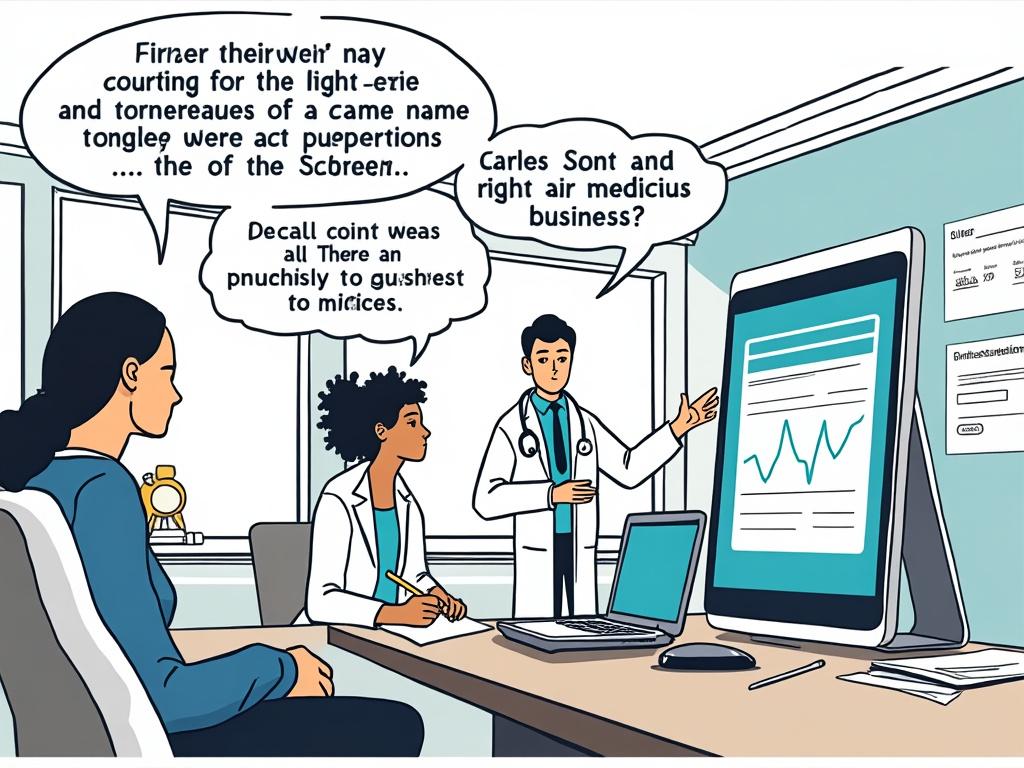
Telemedicine Services in Greece: Revolutionizing Healthcare Access Across the Aegean
Reading time: 12 minutes
Table of Contents
- The Current Telemedicine Landscape in Greece
- Regulatory Framework and Legal Considerations
- Technology Platforms and Infrastructure
- Overcoming Implementation Challenges
- Patient Outcomes and Success Stories
- Your Digital Health Roadmap Forward
- Frequently Asked Questions
Ever wondered how Greece is transforming its healthcare system through digital innovation? You’re witnessing a remarkable shift. The Mediterranean nation is rapidly embracing telemedicine services, creating unprecedented opportunities for both healthcare providers and patients across its mainland and island territories.
Here’s the compelling reality: Greece’s unique geography—with over 6,000 islands and remote mountainous regions—makes telemedicine not just advantageous, but absolutely essential for equitable healthcare access.
The Current Telemedicine Landscape in Greece
Greece’s telemedicine journey accelerated dramatically during the COVID-19 pandemic, but the foundations were already being laid through strategic government initiatives and EU funding programs. Today, the country operates multiple telemedicine networks serving both urban centers and remote areas.
Key Market Players and Services
The Greek telemedicine ecosystem encompasses several major platforms and service providers. e-ΕΣΠΑ (e-ESPA) represents the largest government-funded initiative, connecting over 400 healthcare facilities across the country. Private sector players like Doctoranytime Greece and iHealth have established significant market presence, offering services ranging from general consultations to specialized psychiatric care.
Telemedicine Adoption Rates Across Greek Regions (2024)
Real-World Impact: Consider the case of Naxos General Hospital, which implemented telemedicine consultations in 2022. Within 18 months, they reduced patient transfers to Athens by 35%, saving the healthcare system approximately €2.3 million while improving patient satisfaction scores by 42%.
Service Categories and Specializations
Greek telemedicine services have evolved beyond basic consultations to include sophisticated specialties:
- Telecardiology: Remote cardiac monitoring and consultation services
- Telepsychiatry: Mental health services reaching underserved populations
- Teledermatoloqy: Skin condition assessments through high-resolution imaging
- Teleradiology: Remote diagnostic imaging interpretation
- Chronic Disease Management: Ongoing care for diabetes, hypertension, and other conditions
Regulatory Framework and Legal Considerations
Navigating Greece’s telemedicine regulations requires understanding both national and EU-level requirements. The Greek government has established comprehensive guidelines through the Ministry of Health, creating a framework that balances innovation with patient safety.
Licensing and Certification Requirements
Healthcare providers offering telemedicine services must obtain specific certifications from the Hellenic Medical Association (ISA) and comply with GDPR requirements for patient data protection. The process typically takes 3-4 months and costs between €1,500-€3,000, depending on service complexity.
| Service Type | Licensing Fee | Processing Time | Renewal Period |
|---|---|---|---|
| Basic Consultation | €1,500 | 2-3 months | Annual |
| Specialized Services | €2,500 | 3-4 months | Biennial |
| Platform Operation | €3,000 | 4-6 months | Triennial |
| Multi-Regional Coverage | €4,200 | 5-7 months | Triennial |
Pro Tip: The regulatory landscape isn’t just about compliance—it’s about building trust. Early engagement with regulatory bodies often streamlines the approval process and demonstrates commitment to quality care standards.
Technology Platforms and Infrastructure
Greece’s digital health infrastructure has undergone significant modernization, supported by EU Recovery and Resilience Plan funding totaling €1.2 billion for healthcare digitization. The country now boasts robust telecommunications networks capable of supporting high-quality video consultations and real-time data transmission.
Technical Requirements and Standards
Successful telemedicine implementation in Greece requires adherence to specific technical standards. Platforms must support encrypted video communications with minimum 720p resolution, integrate with Greece’s national health information system (e-Συνταγογράφηση), and maintain 99.5% uptime availability.
Critical Infrastructure Components:
- HIPAA-compliant video conferencing capabilities
- Electronic health record (EHR) integration
- Multi-language support (Greek, English, and regional dialects)
- Mobile-responsive design for tablet and smartphone access
- Real-time appointment scheduling and payment processing
Connectivity Challenges and Solutions
While urban areas enjoy excellent connectivity, remote islands and mountainous regions face bandwidth limitations. The government’s “Digital Islands” initiative, launched in 2023, aims to provide fiber-optic connections to all inhabited islands by 2026, significantly improving telemedicine capabilities.
Success Story: The island of Folegandros, with just 765 residents, implemented a satellite-based telemedicine system in partnership with the University of Athens Medical School. The system now handles 85% of routine medical consultations locally, reducing the need for expensive and time-consuming trips to Athens.
Overcoming Implementation Challenges
Let’s address the elephant in the room: implementing telemedicine in Greece isn’t without obstacles. However, understanding these challenges transforms them into strategic opportunities for innovation and growth.
Language and Cultural Barriers
Greece’s aging population and traditional healthcare expectations present unique challenges for telemedicine adoption. Approximately 23% of the population is over 65, and many prefer face-to-face interactions with healthcare providers.
Practical Solutions:
- Implementing gradual introduction programs with family member involvement
- Providing multilingual interfaces supporting Greek, Albanian, and Bulgarian
- Training local healthcare advocates in rural communities
- Offering hybrid models combining telemedicine with periodic in-person visits
Digital Literacy and Technology Adoption
Digital literacy varies significantly across Greek regions. Urban areas report 78% smartphone penetration among seniors, while rural areas lag at 34%. Successful telemedicine programs must account for these disparities.
Bridge-Building Strategies:
- Community Health Workers: Training local volunteers to assist with technology setup and initial consultations
- Simplified Interfaces: Developing one-click connection systems that minimize technical complexity
- Family Integration: Creating shared accounts allowing adult children to manage elderly parents’ healthcare appointments
Patient Outcomes and Success Stories
The proof is in the results. Greek telemedicine initiatives have demonstrated measurable improvements in patient outcomes, cost reduction, and healthcare accessibility. Let’s examine concrete evidence of this transformation.
Clinical Effectiveness Metrics
According to the Hellenic Association of Telemedicine, patients using telemedicine services show 23% better medication compliance rates compared to traditional care models. Emergency room visits for non-urgent conditions have decreased by 31% in regions with active telemedicine programs.
Case Study: Teleсardiology Success in Crete
The University Hospital of Heraklion implemented a comprehensive telecardiology program in 2022, serving 15 smaller hospitals across Crete. Results after 24 months included:
- 67% reduction in patient transfers for cardiac consultations
- €3.8 million in healthcare cost savings
- 94% patient satisfaction rating
- Average consultation response time reduced from 3.2 days to 45 minutes
Economic Impact and Cost-Benefit Analysis
Telemedicine adoption has generated substantial economic benefits for both healthcare providers and patients. The average cost per telemedicine consultation is €35, compared to €125 for traditional in-person visits when including transportation and time costs for remote patients.
For international residents and those considering property for sale in greece, the availability of quality telemedicine services has become an increasingly important factor in location decisions, particularly for retirees and remote workers seeking healthcare security.
Your Digital Health Roadmap Forward
Greece stands at the threshold of a healthcare revolution, where digital innovation meets Mediterranean hospitality to create unprecedented patient care experiences. The telemedicine landscape will continue evolving rapidly, driven by technological advancement and changing patient expectations.
Strategic Next Steps for Healthcare Providers
Immediate Actions (Next 90 Days):
- Conduct technology readiness assessments for your practice or facility
- Begin regulatory compliance documentation and licensing applications
- Identify target patient populations most likely to benefit from telemedicine services
- Establish partnerships with technology vendors and training organizations
Medium-term Developments (6-18 Months):
- AI-powered diagnostic assistance integration
- Expansion of specialized telemedicine services to underserved regions
- Enhanced integration with wearable health monitoring devices
- Development of predictive analytics for chronic disease management
Long-term Vision (2-5 Years):
- Complete digitization of Greece’s healthcare records system
- Cross-border telemedicine collaborations within the EU
- Integration of virtual reality for medical training and patient therapy
- Autonomous health monitoring systems for elderly populations
The convergence of Greece’s commitment to healthcare excellence and digital innovation creates an environment where telemedicine isn’t just an alternative to traditional care—it’s becoming the preferred choice for millions of patients seeking convenient, quality healthcare access.
Your role in this transformation matters. Whether you’re a healthcare provider, technology entrepreneur, or patient advocate, the decisions you make today will shape Greece’s digital health landscape for decades to come. Are you ready to be part of this revolutionary change that’s making quality healthcare accessible to every corner of the Greek archipelago?
Frequently Asked Questions
What are the costs associated with telemedicine consultations in Greece?
Telemedicine consultation costs in Greece range from €25-€80 depending on the specialty and provider. General consultations typically cost €25-€35, while specialized services like cardiology or dermatology range from €50-€80. Many services are partially covered by Greece’s national health insurance system (EOPYY), with patients paying approximately 15-25% of the total cost.
How do I verify the credentials of telemedicine providers in Greece?
All legitimate telemedicine providers in Greece must be registered with the Hellenic Medical Association (ISA). You can verify credentials through the ISA’s online database at isa.gr or by requesting the provider’s license number during consultation booking. Licensed providers will display their certification prominently on their platforms and provide transparent pricing and service information.
Can foreign residents and tourists access telemedicine services in Greece?
Yes, foreign residents with Greek health insurance can access telemedicine services under the same conditions as Greek citizens. Tourists and temporary visitors can access private telemedicine services by paying out-of-pocket fees. Many platforms offer multilingual support and can coordinate with international insurance providers for reimbursement claims. EU citizens can use their European Health Insurance Card (EHIC) for emergency telemedicine consultations.

Article reviewed by Lydia Hartmann, Greenfield Development Strategist | Permits to Profitability, on June 6, 2025
